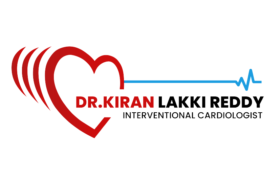A healthy diet plays a crucial role in maintaining overall health and preventing chronic diseases. Here are some key principles of a healthy diet:
- Eat a variety of nutrient-rich foods: Include a wide range of fruits, vegetables, whole grains, lean proteins (such as poultry, fish, legumes, and tofu), and healthy fats (such as nuts, seeds, avocado, and olive oil) in your diet. These foods provide essential vitamins, minerals, fiber, and other beneficial compounds.
- Focus on fruits and vegetables: Aim to fill half your plate with a colorful variety of fruits and vegetables. They are rich in vitamins, minerals, antioxidants, and dietary fiber. Include different types and colors to ensure a wide range of nutrients.
- Choose whole grains: Opt for whole grain foods like whole wheat bread, brown rice, quinoa, oats, and whole grain cereals. They contain more fiber, vitamins, and minerals compared to refined grains.
- Include lean proteins: Choose lean sources of protein, such as poultry, fish, legumes (beans, lentils, chickpeas), tofu, and low-fat dairy products. These provide important nutrients without excessive saturated fat.
- Reduce processed foods: Limit the consumption of processed and packaged foods, which are often high in added sugars, unhealthy fats, and sodium. These include sugary snacks, processed meats, sugary drinks, and packaged snacks.
- Limit added sugars and sugary drinks: Minimize the intake of foods and drinks with added sugars, such as soda, candy, pastries, and sweetened cereals. Opt for water, herbal tea, or unsweetened beverages instead.
- Control portion sizes: Be mindful of portion sizes to avoid overeating. Use smaller plates and bowls, and listen to your body’s hunger and fullness cues.
- Stay hydrated: Drink an adequate amount of water throughout the day. Water helps maintain hydration, aids digestion, and supports overall bodily functions.
- Reduce sodium intake: Limit the consumption of high-sodium foods like processed meats, canned soups, and packaged snacks. Opt for herbs, spices, and other seasonings to flavor your meals instead.
- Practice mindful eating: Pay attention to your eating habits and enjoy meals without distractions. Eat slowly, savoring the flavors and textures of your food. This can help you recognize feelings of fullness and promote better digestion.
Remember, a healthy diet is about making sustainable choices and finding a balance that works for you. It’s important to consult with a healthcare professional or registered dietitian for personalized guidance based on your specific dietary needs, preferences, and any underlying health conditions.
The Mediterranean diet is a dietary pattern based on the traditional eating habits of people living in countries bordering the Mediterranean Sea, such as Greece, Italy, Spain, and Turkey. It has gained recognition for its potential health benefits and is considered one of the healthiest diets to follow. Here are the key features of the Mediterranean diet:
- Abundant plant-based foods: The Mediterranean diet emphasizes the consumption of fruits, vegetables, whole grains, legumes, nuts, and seeds. These foods are rich in fiber, vitamins, minerals, and antioxidants.
- Healthy fats: Instead of relying on saturated and trans fats, the Mediterranean diet encourages the consumption of healthy fats, primarily from olive oil, nuts, and seeds. Olive oil, in particular, is a central component and is used as the primary source of fat in cooking and dressing.
- Moderate intake of fish and poultry: Fish, especially fatty fish like salmon, mackerel, and sardines, is consumed regularly in the Mediterranean diet due to its omega-3 fatty acid content. Poultry is also included in moderation.
- Limited red meat: Red meat consumption is limited in the Mediterranean diet and is often reserved for special occasions. When consumed, it is typically in small portions.
- Dairy products in moderation: The intake of dairy products, such as yogurt and cheese, is moderate in the Mediterranean diet. Greek yogurt is a common choice due to its probiotic content.
- Fresh fruits as desserts: Instead of sugary desserts, fresh fruits are commonly enjoyed as a healthier alternative. They provide natural sweetness and additional nutrients.
- Red wine in moderation: Moderate consumption of red wine, typically with meals, is a characteristic of the Mediterranean diet. This is optional and should be avoided by individuals who cannot tolerate alcohol or have certain health conditions.
The Mediterranean diet has numerous health benefits, including a reduced risk of heart disease, stroke, certain cancers, and chronic conditions like diabetes and obesity. It is believed that the combination of plant-based foods, healthy fats, and moderate consumption of other food groups contributes to these positive health outcomes.
It’s important to note that the Mediterranean diet is not just about the foods consumed but also encompasses a lifestyle approach. Regular physical activity, enjoying meals with family and friends, and adopting mindful eating practices are also emphasized.
While the Mediterranean diet offers many health benefits, it’s important to personalize it based on individual needs, preferences, and any specific dietary considerations. Consulting with a healthcare professional or registered dietitian can provide tailored guidance to help incorporate the Mediterranean diet into your lifestyle.

